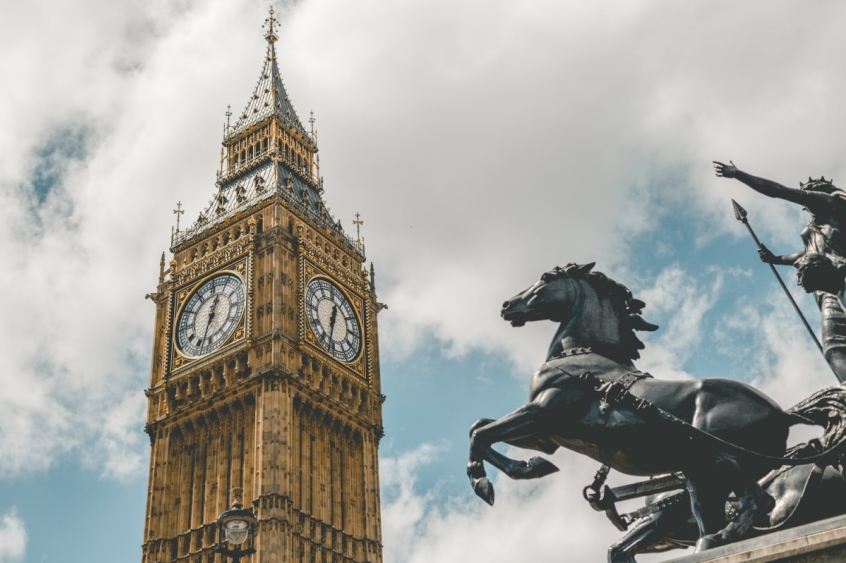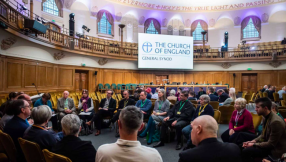
As our politicians campaign energetically ahead of the 12th December deadline, it has become clear that alongside Brexit, the NHS and environmental issues, tax has become a central issue in this election. All of the main parties have been highlighting their promises on tax and spending as a way of capturing voter interest.
This briefing considers what we at Church Action for Tax Justice consider to be the three key questions to ask of any tax and spend policy, and we do this, unashamedly, from a Christian viewpoint. Those three questions are:
1. What is the impact on inequality?
2. Does the policy meet the needs of the most vulnerable?
3. Is tax a good thing and do their policies serve the common good?
1. What is the impact on inequality?
We are all aware that inequality is a major issue both nationally and globally. The richest fifth of the UK population earn more than 12 times that of the poorest fifth, and while this inequality has been relatively stable recently, this represents a significant increase since the 1960s and 1970s. Wealth inequality is even worse with the wealthiest 10% of households taking up almost half the UK's household wealth. Of course, globally the picture is far, far worse with just 26 people owning the same as half the world's population.
We know that such inequality matters. More unequal societies have been shown to have everything from worse mental health rates to lower life expectancies to reduced social mobility and lower productivity. Perhaps it is for these reasons that the scriptures repeatedly emphasize the importance of measures to bring about greater equality: the jubilee principle (Lev 25), believers shared all things in common (Acts 2&4) and Paul's encouragement to the Corinthian church (2 Cor 8:13,14).
As you look at the tax policies of the different parties, consider that question. Are they redressing the unequal balance in income and wealth that plagues the UK and the world, or are their tax policies making no difference or even making things worse? The technical phrase for this is whether a tax proposal is regressive (meaning it creates greater inequality) or progressive (meaning it creates greater equality). Look out for what independent fact checking groups say about the tax policies in regard to this and ask your MP: what is the impact on equality?
2. Does the policy meet the needs of the most vulnerable?
Over 14 million people in the UK live in poverty; 4.5 million of them are children. Those with disabilities and mental health issues are far more likely to live in poverty. Approximately half of UK households affected by poverty have someone with a disability. Around 600,000 people use foodbanks – a huge increase over the last ten years. Finally, one in ten schoolchildren have a diagnosable mental health condition. Once again, if we think globally, all of these statistics are much worse with a billion people still living in extreme poverty and one in every three children in Africa being malnourished.
Yet, meeting the needs of the most vulnerable is clearly at the heart of the Christian gospel. The command to love our neighbour as we love ourselves is at the core of our faith. So what do the various policy proposals say about this: do their proposals meet the needs of the most vulnerable? There are various ways in which tax and spend policies can do this. They can raise funds through taxation to spend more on mental health or on disabilities. They can prioritise benefits or housing. And they can tackle climate change – because we know that climate change disproportionately impacts the global poor. So, 'where do the needs of the most vulnerable feature in their policies?' is another question to ask of our politicians.
3. Is tax a good thing and do their policies serve the common good?
Finally, is tax a good thing? In many ways, this question gets to the heart of the issue. For on the one hand, there exists the idea that taxation is bad, that it is stealing from workers their hard earned money. But if you think about it, taxation is actually really good. It pays for the things we cannot afford on our own. It funds our roads, our security, our healthcare, our education – and all of our emergency services. Without those things, our society would be hugely impoverished.
Taxation then is not our money that the government is stealing from us; it is the money of the midwife or the teacher or road engineer or the refuse collector – and the government is just passing it on for us. So tax is fundamentally a good thing.
But more than that, taxation says something significant about our values as a society. It communicates that we are not just a group of individuals who happen to be in the same place and time but rather we are community. The point about being a community is that there are some things we do collectively, and paying through taxation for public services is one of those things. That's why our strapline at CATJ is 'for the common good', so ask your MP this question also: do their policies consider tax a good thing, and do they serve the common good?
Church Action for Tax Justice (CATJ) is a Christian charity working for a fairer and more effective tax system, where democratic governments set taxes to reflect the Common Good, and individuals and corporations pay their share. To find out more about their work, visit https://www.catj.org.uk/













